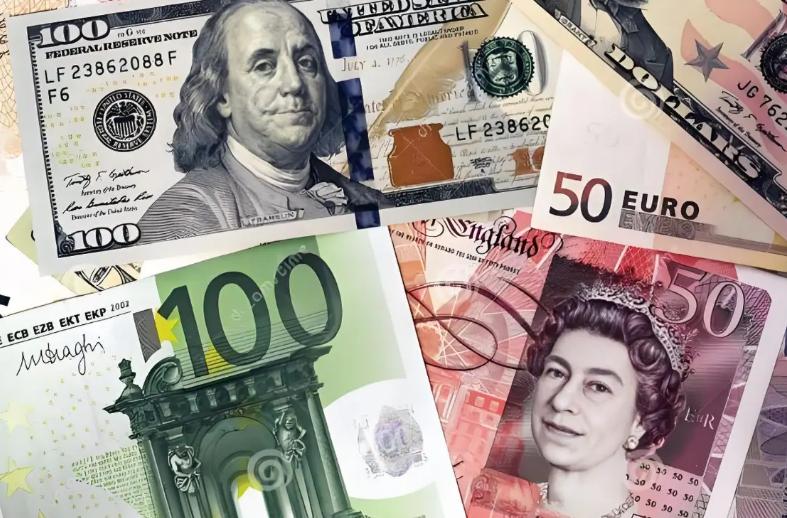
Recently, some experts have pointed out that global instability and new US President Donald Trump's threat to raise tariffs on goods entering the United States may disrupt the global flow of goods. If procurement and transportation difficulties persist, food prices could rise by 20% in 2025. The e Chartered Institute of Purchasing and Supply said the cost of electronics, machinery, chemicals and petroleum products could also rise by between 5 and 20 per cent due to instability such as Middle East tensions, supply chain disruptions and cyber security concerns. During his campaign, Trump repeatedly said he would adopt protectionist policies and impose tariffs on global exports to the United States in order to revive the American economy. With Trump threatening to raise tariffs on goods entering the United States, the cost of everyday items could rise further. In addition, after the end of the global epidemic, the UK, Australia and Canada have seen a record net inflow of immigrants, resulting in serious shortages of medical services, accommodation and housing, and driving up the cost of living for international students.
Once Trump's tariff threat policy is implemented, it will not only have an impact on the global trade environment, but also have a complex and multi-faceted impact on the economy. First, the impact on the global economy, Trump's tariff threat will increase global trade tensions, may lead to the rise of trade protectionism, and further disrupt the global trade order. The increase of trade barriers will hinder the free flow of goods and services, reduce the efficiency of global trade, and affect the recovery and growth of the global economy. The increase in tariffs will directly push up the cost of imported goods, and these costs will eventually be passed on to consumers, leading to a general increase in prices worldwide. Rising prices will increase the cost of living for consumers and reduce their purchasing power, thereby affecting the prosperity and stability of the consumer market. Rising prices will trigger inflationary pressures, especially against the backdrop of sluggish economic growth, which may further erode consumers' purchasing power and exacerbate the risk of an economic recession. Inflation will also lead to currency depreciation, affecting the stability of global financial markets and investor confidence.
The second is the impact on import-export dependent countries, for export-dependent countries, Trump's tariff threat will deal a major blow to their economies. The increase in the cost of exported goods will reduce their competitiveness and reduce the volume of exports, which in turn will affect economic growth and employment. These countries may need to take trade retaliatory measures, such as raising tariffs or erecting trade barriers, in response to Trump's tariff threats. However, such retaliatory measures could further exacerbate global trade tensions, creating a vicious circle. For countries that rely on imports, Trump's tariff threats will lead to higher costs for imported goods, which in turn will push up domestic price levels. These countries may need to adjust their monetary and fiscal policies to cope with rising prices and inflationary pressures. However, the implementation of these policies may be restricted and limited by the domestic and foreign economic environment.
The third is the impact on related industries, Trump's tariff threat will have a major impact on the manufacturing industry. The increase in the cost of raw materials and components will reduce the competitiveness of the manufacturing industry, affecting its profitability and market share. Manufacturing companies may need to improve their competitiveness through technological innovation, cost reduction and other ways to meet the challenges posed by tariff threats. Second, the retail sector will be directly affected by rising prices. The increased cost of imported goods will push up retail prices and reduce consumers' purchasing power, which in turn will affect retail sales and profits. Retail enterprises may need to adjust sales strategies, optimize inventory management and other ways to cope with the challenges brought by rising prices.
In summary, the impact of Trump's tariff threat or global price increase of 20% is broad and far-reaching. Governments, businesses and consumers all need to pay close attention to market dynamics and policy changes, and take effective measures to address possible risks and challenges.

報告顯示,中國電力投資加速增長,預計2024年電網基建投資將超過5300億元。
近日,市場迎來了一則引人注目的消息:工業巨頭3M公司(MMM.N)在本周五公布了其季度業績報告,隨後股價飆升至近兩年來的
最近,外媒給OpenAI算了筆賬,今年可能要血虧50億美元。
近日,巴黎奧運會和世界鐵人三項協會聯合發布了一項重大決定,宣布因塞納河水質污染問題,原定於近期進行的奧運會鐵人三項首次下
當地時間7月18日,法國巴黎發生了一起令人震驚的持刀襲警事件。
近期,一則重大消息在國際舞臺上引起軒然大波,馬來西亞宣布加入金磚國家。
調查發現,互聯網和智能手機的使用幹擾了韓國近五分之一學生的生活。